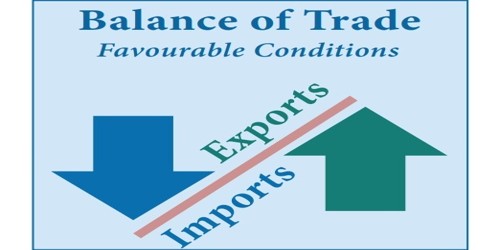
Investing in the stock market can be both exciting and daunting, especially for new investors. One of the key elements that can significantly influence stock prices is the earnings report. Companies release these reports regularly, providing insights into their financial performance, future prospects, and overall health. Understanding the role of earnings reports in stock selection is crucial for making informed investment decisions.
What is an Earnings Report?
An earnings report, also known as an earnings announcement, is a public report issued by a publicly traded company that provides key financial data for a specific period, usually a quarter or a year. This report typically includes:
- Revenue: The total income generated from the sale of goods or services before any expenses are deducted.
- Earnings per Share (EPS): A measure of a company's profitability, calculated by dividing net income by the number of outstanding shares.
- Net Income: The total profit of a company after all expenses, taxes, and costs have been deducted.
- Guidance: Forward-looking statements regarding the company’s expected performance in upcoming quarters, which can influence investor sentiment.
Earnings reports are released on a scheduled basis, often quarterly. They serve as a critical tool for investors to gauge a company's financial health and make strategic investment decisions.
The Importance of Earnings Reports in Stock Selection

1. Assessing Performance
Earnings reports provide a snapshot of a company's performance during a specific period. By analyzing these reports, investors can assess not only the current health of a company but also how it has performed over time. Consistent growth in revenue and earnings can signal a strong investment opportunity, while declining sales and profits may indicate potential problems ahead.
2. Comparing Against Expectations
Prior to an earnings report, analysts often set earnings estimates based on various factors such as historical performance, industry trends, and broader market conditions. Investors eagerly await the actual reported figures to see if they beat or miss these expectations. A company that exceeds expectations can experience a surge in stock price, while a miss might result in a downward adjustment.
3. Valuation Metrics
Earnings reports also play a vital role in determining a company's valuation. Common metrics used to assess a company's value include the price-to-earnings ratio (P/E ratio) and the forward P/E ratio. These metrics help investors compare companies within the same industry and decide whether a stock is overvalued or undervalued based on its earnings performance.
4. Decision-Making Tool
For many investors, earnings reports are a critical decision-making tool. They provide valuable insights that aid investors in deciding whether to buy, hold, or sell shares. This is particularly important for active traders and those following a value investing strategy. Monitoring earnings reports can lead to timely actions that capitalize on price fluctuations.
5. Sentiment Analysis
Earnings reports can also influence market sentiment. Positive reports can generate excitement and confidence among investors, potentially leading to increased buying activity. Conversely, disappointing earnings can create fear, contributing to selling pressure. Understanding the broader sentiment around earnings can help investors navigate market volatility.
Key Components to Analyze in Earnings Reports
To effectively utilize earnings reports in stock selection, investors should pay attention to several key components:
Revenue Growth
Examining a company's revenue growth over time is essential. Consistent revenue growth indicates a strong demand for products or services and a healthy market position. Investors should also compare this growth to industry peers to gauge competitiveness.
Earnings Per Share (EPS)
EPS is a critical metric, as it reflects a company's profitability on a per-share basis. A growing EPS is generally a positive sign, while a declining EPS may signal underlying issues. It is also helpful to analyze adjusted EPS, which excludes one-time expenses or nonrecurring items for a clearer picture of ongoing performance.
Guidance and Future Outlook
Management guidance provided in earnings reports can shape investor expectations. If a company offers strong guidance for future quarters, it can boost investor confidence, while weak guidance may raise red flags. Investors should assess the assumptions behind the guidance and whether they are realistic based on past performance.
Cost Management
Understanding a company's expense structure can provide insights into its operational efficiency. Investors should assess whether a company is effectively managing its costs while maintaining or improving revenue. Increasing expenses without corresponding revenue growth can be a warning sign.
Balance Sheet Health
While earnings reports primarily focus on income statements, a company's balance sheet is equally important. Investors should consider key metrics such as total debt, cash reserves, and working capital. A strong balance sheet can provide a buffer during economic downturns and enable a company to invest in growth opportunities.
How Earnings Reports Influence Stock Prices

Earnings reports can dramatically influence stock prices for various reasons:
1. Immediate Reactions
The stock market often reacts swiftly to earnings reports. If a company beats earnings estimates, its stock may surge as investors rush to buy shares. Conversely, a miss can lead to immediate sell-offs, causing prices to tumble.
2. Long-Term Trends
While immediate reactions are significant, the long-term impact of earnings reports can be even more critical. Consistent positive earnings reports can lead to a sustained uptrend in stock prices, while repeated disappointments can establish a downtrend.
3. Market Sentiment
Earnings reports can sway overall market sentiment, affecting not just individual stocks but entire sectors or indices. For instance, if several tech companies report better-than-expected earnings, it can create a positive sentiment in the tech sector, leading to increased buying across the board.
4. Institutional Investor Activity
Large institutional investors tend to respond to earnings reports as well. Their actions can significantly impact stock prices, given their substantial buying or selling power. If a major fund decides to sell off shares based on disappointing earnings results, it can trigger a broader market reaction.
Conclusion
Earnings reports are a critical component of stock selection for investors. They provide valuable insights into a company's performance, financial health, and future prospects. By analyzing key components of earnings reports, investors can make informed decisions and improve their chances of success in the stock market.
In this dynamic environment, staying updated on earnings reports is essential for adapting investment strategies and navigating through market fluctuations. As the stock market continues to evolve, understanding the role of earnings reports will remain a fundamental skill for investors seeking to build and sustain wealth.
Related
-
Financial News

-
Cryptocurrency

-

-
Forex Market

-
Economic Indicators

-
Forex Market

